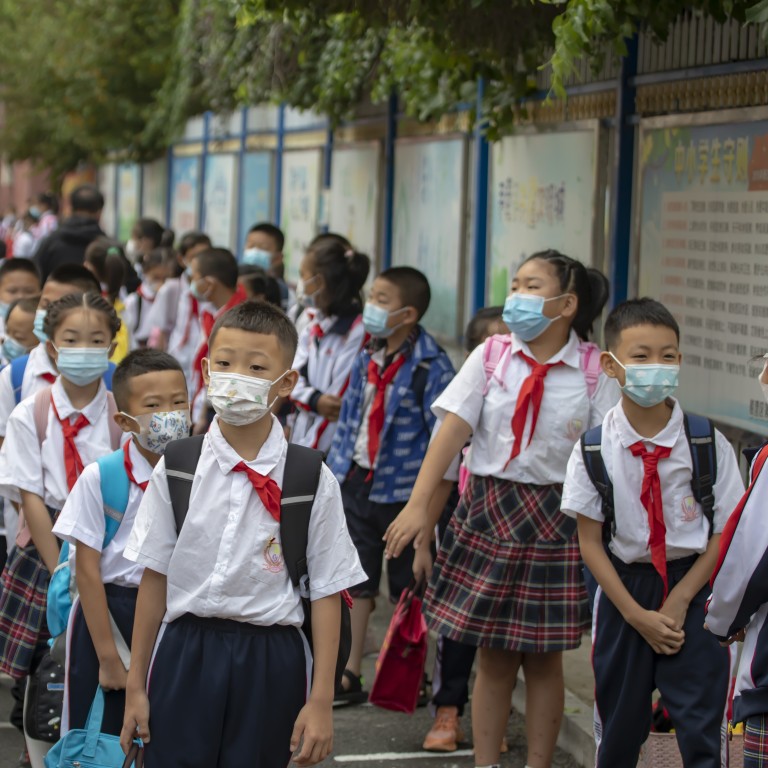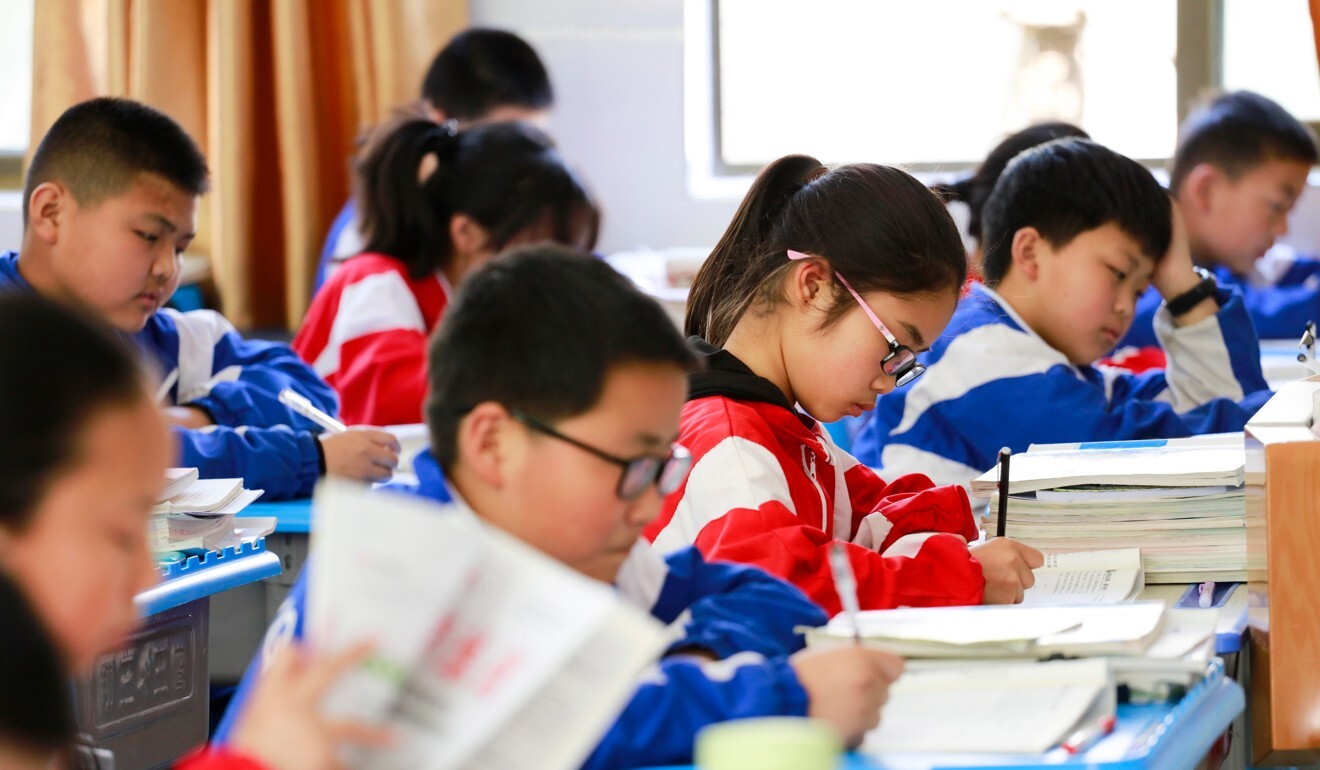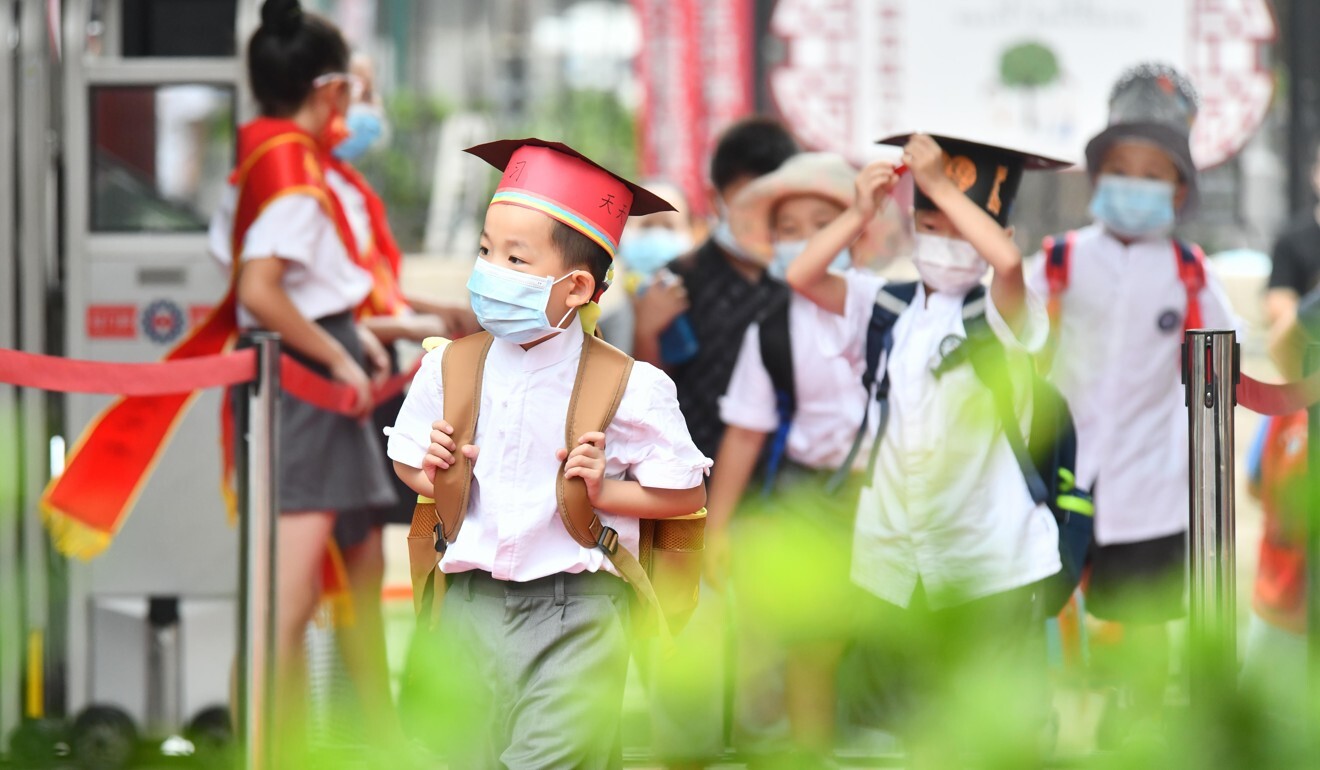
Chinese government to crack down on underground private tutoring market
- The Education Ministry posted a decree on Wednesday that said it would crack down on hidden private-tutoring services
- People and companies have offered ‘consulting’ or ‘home economics’ to get around the new reforms
The Chinese Ministry of Education issued a decree on Wednesday that said it would close loopholes used by some companies to circumvent the recent crackdown on the private tutoring industry.
“In some places, after-school tutoring has gone underground to avoid supervision, which has affected the implementation of the policy and caused adverse effects. We need to guide all regions to resolutely investigate and punish these acts,” it said.

It is unclear at the moment how authorities intend to carry out the new measures.
Xiong Bingqi, the deputy director of the Shanghai-based 21st Century Education Research Institute, said: “The supervisory department can inspect, investigate and punish the tutoring sector through national oversight and use different means to get more reports. However, it is quite difficult to obtain evidence and investigate cases if the industry goes underground.”
The country’s top economic planner said on Monday that local governments should establish mandatory benchmark fees and tuition ranges for legal tutoring companies.
The National Development and Reform Commission notice said any tuition priced higher than the baseline could only be 10 per cent more expensive, and it set an end-of-the-year deadline to submit pricing structures.

03:22
Crackdown on private tutoring leaves industry, students and parents drawing a blank
The sweeping crackdown on private tutoring officially began in July, when China’s State Council, its top administrative body, announced a new set of guidelines to “ease the burden of young students”. The rules apply to kids going through mandatory education, which applies to all students below senior secondary school age.
The new guidelines ordered local governments to stop approving new tutoring companies, forced existing companies to become non-profit organisations, eliminated classes on weekends and holidays and banned tutoring companies from receiving foreign investment.
After the reforms, there were concerns that the strict rules would create a black market because the demand for private tutoring is still huge, said Xiong.
“There could be in-service teachers and tutors; some even calling themselves ‘live-in nannies’. Some training institutions could also send tutors to homes,” he said.

Some of the top companies in China, including Wall Street English and Juren Education, have struggled to stay in business, while others tried to find avenues that allowed them to operate without violating the regulations.
Private in-house tutors became more popular after the reforms, the Southern Metropolis News reported this week. The paper quoted agencies that advertise these tutors as “nutritionists”, “gym teachers” or “nursery teachers”.
A staff member from the after-school tutoring giant TAL Education Group told the South China Morning Post they would only teach children on weekdays and offered recorded tutoring videos as an alternative product.
Officials from the city of Nantong, in eastern China’s Jiangsu province, issued an official statement on Tuesday that encouraged residents to report offline tutorial classes. Whistle-blowers would receive a 200 yuan (US$31) reward.
It is quite difficult to obtain evidence and investigate cases if the industry goes underground.
Besides the crackdown on tutoring agencies, other national education reforms pushed for homework reduction in schools, demanded no exams for Year One and Year Two primary students and called for the elimination of rankings based on test results.
Some parents hailed the decision to reduce workload. Others worry that students will be less prepared for the tests because there have been few changes to China’s highly competitive school entrance exams – the most notable being the gaokao for universities.

.jpg?itok=H5_PTCSf&v=1700020945)
